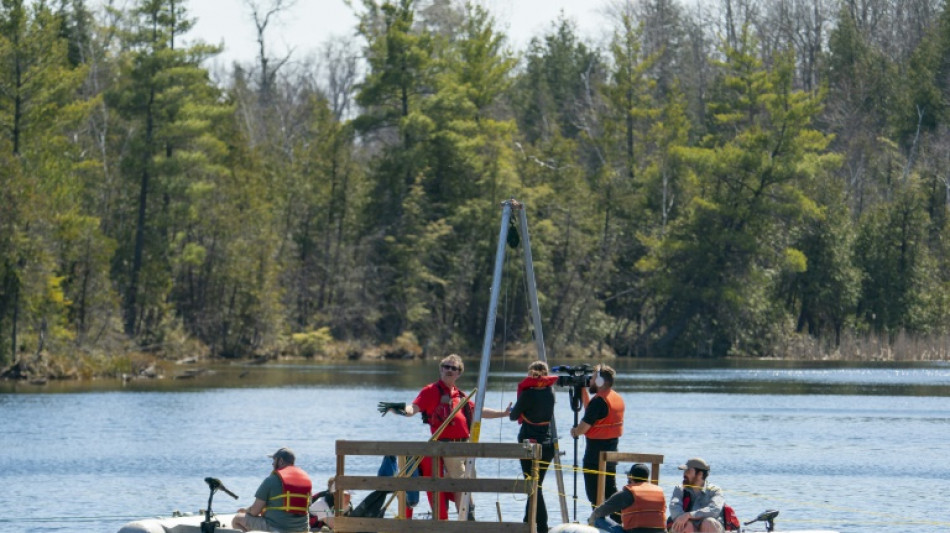
-
 Barca strengthen Liga lead at Villarreal, Atletico go third
Barca strengthen Liga lead at Villarreal, Atletico go third
-
Third 'Avatar' film soars to top in N. American box office debut

-
 Third day of Ukraine settlement talks to begin in Miami
Third day of Ukraine settlement talks to begin in Miami
-
Barcelona's Raphinha, Yamal strike in Villarreal win

-
 Macron, on UAE visit, announces new French aircraft carrier
Macron, on UAE visit, announces new French aircraft carrier
-
Barca's Raphinha, Yamal strike in Villarreal win

-
 Gunmen kill 9, wound 10 in South Africa bar attack
Gunmen kill 9, wound 10 in South Africa bar attack
-
Allegations of new cover-up over Epstein files

-
 Atletico go third with comfortable win at Girona
Atletico go third with comfortable win at Girona
-
Schwarz breaks World Cup duck with Alta Badia giant slalom victory

-
 Salah unaffected by Liverpool turmoil ahead of AFCON opener - Egypt coach
Salah unaffected by Liverpool turmoil ahead of AFCON opener - Egypt coach
-
Goggia eases her pain with World Cup super-G win as Vonn takes third

-
 Goggia wins World Cup super-G as Vonn takes third
Goggia wins World Cup super-G as Vonn takes third
-
Cambodia says Thai border clashes displace over half a million

-
 Kremlin denies three-way US-Ukraine-Russia talks in preparation
Kremlin denies three-way US-Ukraine-Russia talks in preparation
-
Williamson says 'series by series' call on New Zealand Test future

-
 Taiwan police rule out 'terrorism' in metro stabbing
Taiwan police rule out 'terrorism' in metro stabbing
-
Australia falls silent, lights candles for Bondi Beach shooting victims

-
 DR Congo's amputees bear scars of years of conflict
DR Congo's amputees bear scars of years of conflict
-
Venison butts beef off menus at UK venues

-
 Cummins, Lyon doubts for Melbourne after 'hugely satsfying' Ashes
Cummins, Lyon doubts for Melbourne after 'hugely satsfying' Ashes
-
'It sucks': Stokes vows England will bounce back after losing Ashes

-
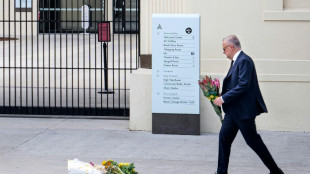 Australia probes security services after Bondi Beach attack
Australia probes security services after Bondi Beach attack
-
West Indies need 462 to win after Conway's historic century

-
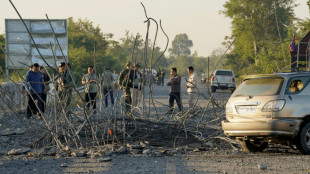 Thai border clashes displace over half a million in Cambodia
Thai border clashes displace over half a million in Cambodia
-
Australia beat England by 82 runs to win third Test and retain Ashes

-
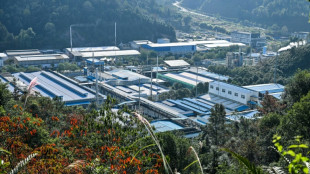 China's rare earths El Dorado gives strategic edge
China's rare earths El Dorado gives strategic edge
-
Japan footballer 'King Kazu' to play on at the age of 58

-
 New Zealand's Conway joins elite club with century, double ton in same Test
New Zealand's Conway joins elite club with century, double ton in same Test
-
Australian PM orders police, intelligence review after Bondi attack
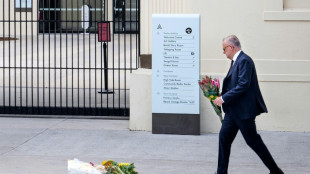
-
 Durant shines as Rockets avenge Nuggets loss
Durant shines as Rockets avenge Nuggets loss
-
Pressure on Morocco to deliver as Africa Cup of Nations kicks off

-
 Australia remove Smith as England still need 126 to keep Ashes alive
Australia remove Smith as England still need 126 to keep Ashes alive
-
Myanmar mystics divine future after ill-augured election

-
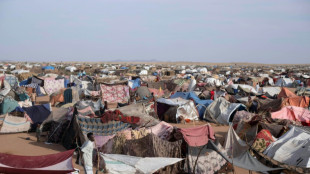 From the Andes to Darfur: Colombians lured to Sudan's killing fields
From the Andes to Darfur: Colombians lured to Sudan's killing fields
-
Eagles win division as Commanders clash descends into brawl

-
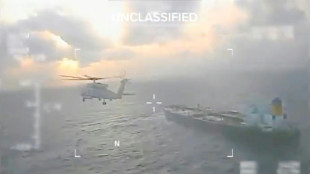 US again seizes oil tanker off coast of Venezuela
US again seizes oil tanker off coast of Venezuela
-
New Zealand 35-0, lead by 190, after racing through West Indies tail

-
 How Can Gum Disease Lead to Tooth Loss in Kyle, TX?
How Can Gum Disease Lead to Tooth Loss in Kyle, TX?
-
West Indies 420 all out to trail New Zealand by 155

-
 Arteta tells leaders Arsenal to 'learn' while winning
Arteta tells leaders Arsenal to 'learn' while winning
-
Honour to match idol Ronaldo's Real Madrid calendar year goal record: Mbappe

-
 Dupont helps Toulouse bounce back in Top 14 after turbulent week
Dupont helps Toulouse bounce back in Top 14 after turbulent week
-
Mbappe matches Ronaldo record as Real Madrid beat Sevilla

-
 Gyokeres ends drought to gift Arsenal top spot for Christmas
Gyokeres ends drought to gift Arsenal top spot for Christmas
-
Arsenal stay top despite Man City win, Liverpool beat nine-man Spurs

-
 US intercepts oil tanker off coast of Venezuela
US intercepts oil tanker off coast of Venezuela
-
PSG cruise past fifth-tier Fontenay in French Cup

-
 Isak injury leaves Slot counting cost of Liverpool win at Spurs
Isak injury leaves Slot counting cost of Liverpool win at Spurs
-
Juve beat Roma to close in on Serie A leaders Inter


Canadian lake ground-zero for Anthropocene epoch
Scientists on Tuesday designated a small body of water near Toronto, Canada as ground-zero for the Anthropocene, the proposed geological epoch defined by humanity's massive and destabilising impact on the planet.
Layered sediment at the bottom of Lake Crawford -- laced with microplastics, fly-ash spread by burning oil and coal, and the detritus of nuclear bomb explosions -- is the single best repository of evidence that a new, and challenging, chapter in Earth's history has begun, members of the Anthropocene Working Group concluded.
"The data show a clear shift from the mid-20th century, taking Earth's system beyond the normal bounds of the Holocene", the epoch that began 11,700 years ago as the last ice age ended, working group member Andy Cundy, a professor at the University of Southampton, told AFP.
After years of deliberation, the Canadian lake was selected from among 12 candidate sites around the world -- including another lake, coral reefs, ice cores and an ocean bay in Japan -- as the Anthropocene's so-called golden spike.
"The sediment found at the bottom of the Crawford Lake provides an exquisite record of recent environmental change over the last millennia," said working group chair Simon Turner, a professor at University College London.
"It is this ability to precisely record and store this information as a geological archive that can be matched to historical global environmental changes."
Those changes are currently on dramatic display: last week was the hottest globally on record. Out-of-control forest fires have been ravaging Canada for months, while the US and China are coping with unprecedented heat, flooding and drought at the same time.
Humanity has burned so much fossil fuel that concentrations of planet-warming CO2, meanwhile, have increased by half.
Sea surface temperatures have hit new highs in recent weeks, and Antarctic sea ice last month was 17 percent below the previous record low for June.
- 'Great Acceleration' -
Last month scientists reported that so much water has been pumped from underground reservoirs that Earth's geographic North Pole has shifted -- by nearly five centimetres (two inches) per year.
According to the rules of the International Commission on Stratigraphy (ICU), which in 2009 mandated a team of geologists to assess evidence for the Anthropocene, there must be a synchronous "primary marker" for a proposed boundary that is detectable in the geological record almost anywhere on the planet.
For the Anthropocene, plutonium cast off by hydrogen bomb tests provides that "global fingerprint", explained Cundy.
"The clearest marker for a single year -- which gives an abrupt and effectively instantaneous snapshot -- is plutonium, because there's so little of it naturally present."
That means 1952 -- when the United States first detonated a huge hydrogen bomb in the Marshall Islands as a test -- could become the Anthropocene's boundary year, he said.
Smaller atom bomb explosions before that left mostly regional imprints.
A sharp, hockey-stick increase across a dozen markers of humanity's growing impact -- including population, water use, greenhouse gas emissions, and forest loss -- bunched around the middle of the 20th century add up to what scientists call the Great Acceleration.
The "epoch of humans" first proposed in 2002 by chemistry Nobel Paul Crutzen is widely accepted within science as a reality, but faces daunting hurdles for formal validation by the gatekeepers of Earth's official geological timeline of eon, eras, periods and epochs, such as the Jurassic and the Cretaceous.
The Anthropocene's recommendations must be approved by super-majority vote of two separate committees before final validation by the International Unions of Geological Sciences (IUGS).
The heads of those bodies have thus far expressed sharp scepticism towards the Anthropocene, mostly on technical grounds.
"The vote in the working group is on a routine step at the lowest level," IUGS General Secretary Stanley Finney told AFP.
The working group has yet to submit its final recommendation to the International Commission on Stratigraphy, he noted.
"Only then can it be given peer review, and the evidence and arguments truly evaluated," Finney said.
A.Mahlangu--AMWN



